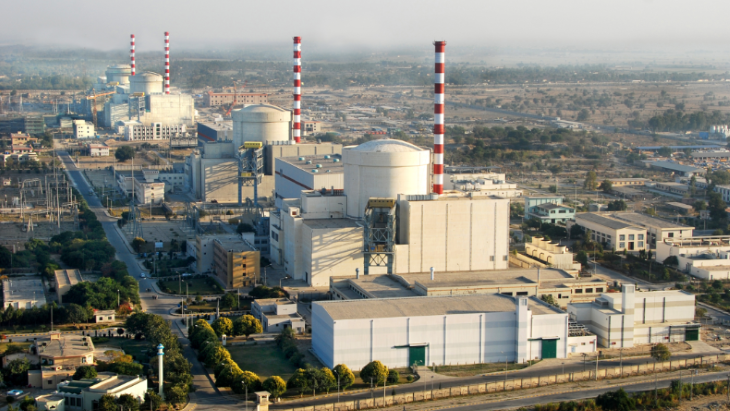SHER ALI KAKAR
The demand for a clean, reliable, and cost-effective source of energy has grown as the world is experiencing looming climate change effects coupled with energy supply issues emanating from the ongoing Russia-Ukraine war. Nuclear energy, which has been a source of power for many countries for several decades, has received increased attention in recent years due to its reliability and cost-effectiveness. Pakistan has been utilizing nuclear technology for energy generation for five decades, providing clean and cost-effective energy to the nation. Pakistan`s current economic crisis, which has resulted in an eight-year low in foreign exchange reserves amid fear of default, demands the best alternatives to save foreign exchange reserves. In this respect, nuclear energy, which is already a key contributor to saving foreign exchange reserves of the country, needs to be prioritized.
Nuclear energy is a clean energy source, which means that it does not produce any harmful emissions like carbon dioxide or greenhouse gases. It has a lower carbon footprint compared to traditional fossil fuels like coal and natural gas. In addition to this, it is a reliable energy source because nuclear power plants are designed to run continuously for years, providing a steady and constant supply of electricity.
Besides, nuclear energy is an efficient source of energy as it produces a large amount of electricity consuming a small amount of fuel. Compared to wind and solar energy, nuclear energy is more cost-effective in terms of the amount of energy produced per dollar invested. While wind and solar energy are becoming increasingly affordable, they are still more expensive than nuclear energy and require large investments in infrastructure.
Besides, the levelized cost of electricity (LCOE) for nuclear energy has decreased over the past few decades, making it a more viable energy option. Pakistan has been utilizing nuclear technology for the benefit of its citizens. Peaceful uses of nuclear technology have been an important aspect of Pakistan`s nuclear program. The Pakistan Atomic Energy Commission (PAEC) has currently established six Nuclear Power Plants (NPPs) in the country and uses the nuclear energy generated from these plants for the well-being of people. Nuclear power plants (NPPs) have been generating energy for the country at low-cost and their contribution to the national grid has increased over the years.
According to Pakistan Economic Survey 2021-2022, from July to March of the 2021 fiscal year, the total capacity of nuclear power plants was 2,530 MW, producing 7,076 million units of electricity. The following year, from July to March of the 2022 fiscal year, there was a 39% increase in capacity to 3,530 MW, resulting in the generation of 12,885 million units of electricity for the national grid. This caused the contribution of nuclear energy to electricity generation to rise from 6.68% during the same period in the previous year to 8.8%.
During the Covid-19 pandemic, the nuclear power plants managed to perform efficiently by consistently providing a steady supply of power at optimal capacity levels. In 2022, energy generated from NPPs Saved $3.035 billion compared to oil, $2.207 billion compared to RLNG, and $1.586 billion compared to imported coal. If the electricity currently produced by nuclear power plants in Pakistan was instead produced by oil-fired or RLNG (Re-gasified Liquified Natural Gas) plants, it would result in much higher fuel costs. The cost of producing the same amount of electricity through oil-fired plants would be around $3 billion in fuel charges alone, and through RLNG, it would cost around $2 billion.
Nuclear energy is certainly a viable option for Pakistan. It has several benefits, including being a relatively low-cost and reliable source of electricity as well as a cleaner alternative to fossil fuels. The contribution of nuclear energy is helping to save a significant amount of money and prevent increased load shedding.
In addition, by reducing its dependence on imported fuel, Pakistan can improve its balance of payments, which is an important factor in its overall economic stability. Thus, by investing in domestically generated nuclear power, Pakistan can potentially save on import costs, which can help save its foreign exchange reserves and lead to economic growth.


